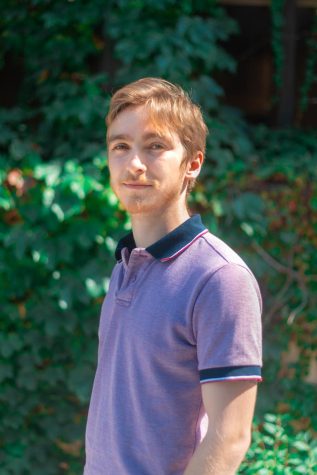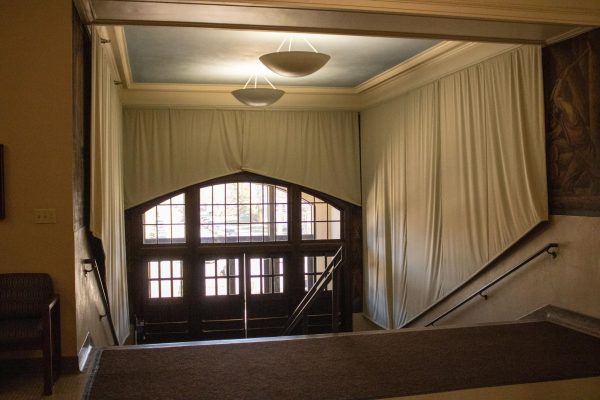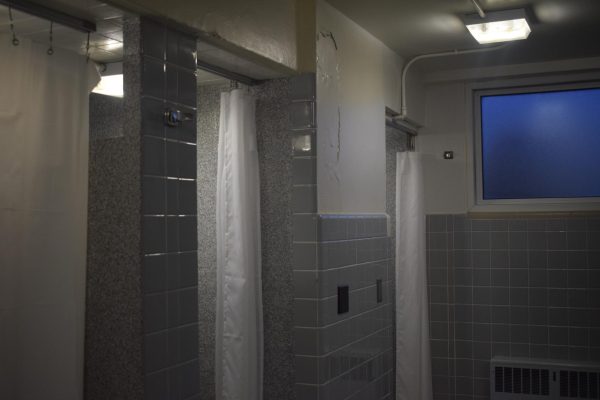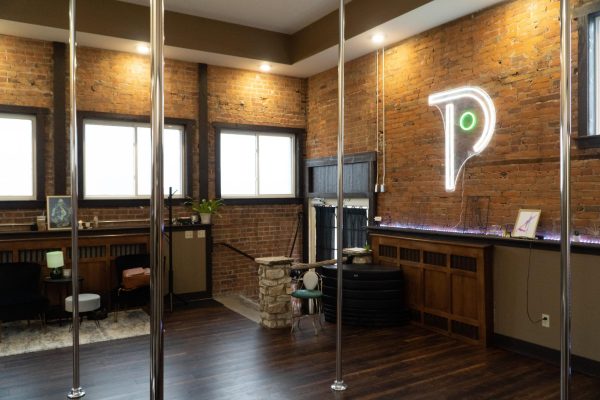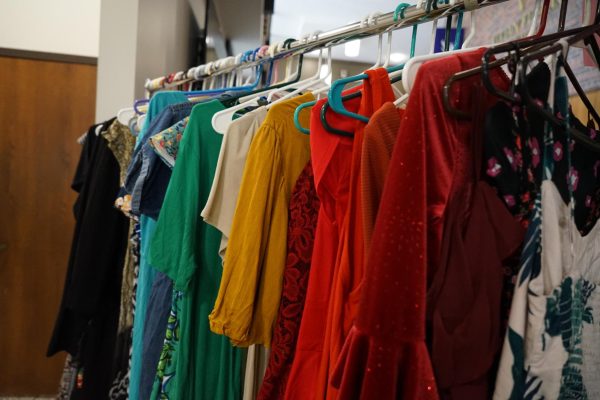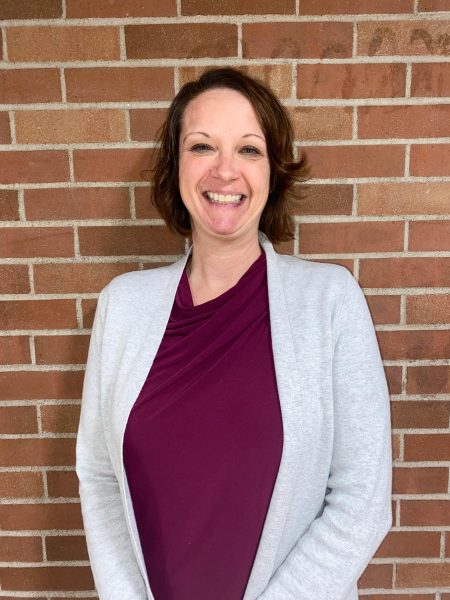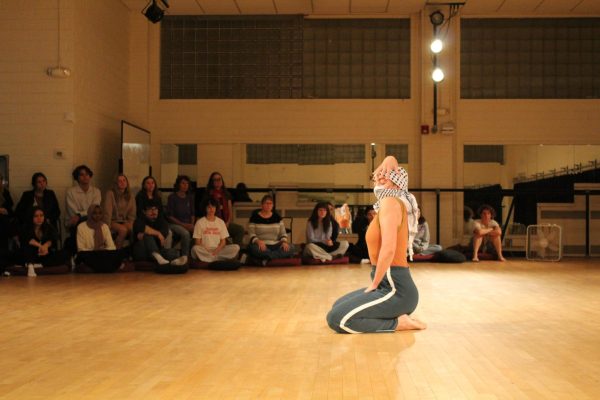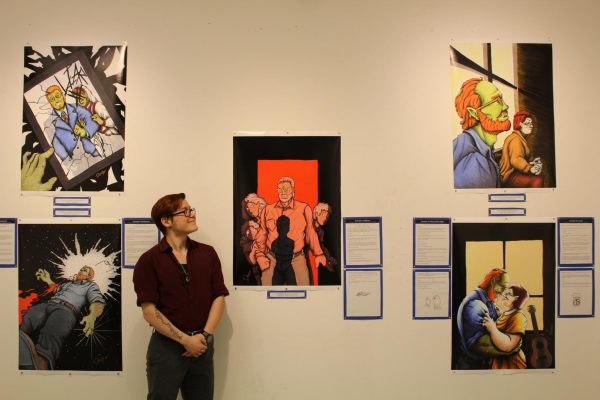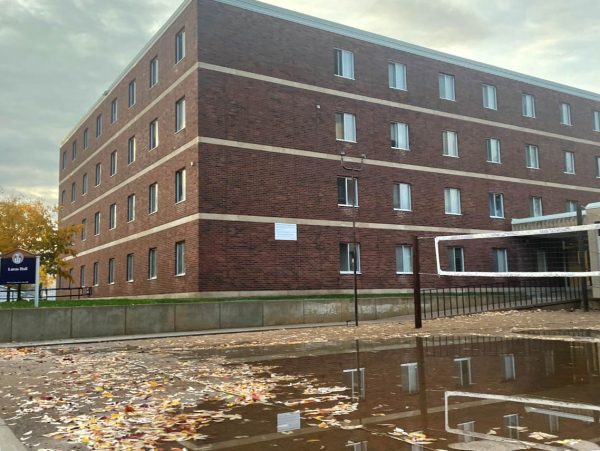Frozen River Film Festival returns in hybrid format for 17th year
February 9, 2022
The Frozen River Film Festival (FRFF) is returning for its 17th year in Winona from Feb. 6 to 13. The FRFF received more submissions this year than ever before running up to its return to in-person programming. With more than 80 films from 30 different countries being shown, workshops and Q&A opportunities with directors, the FRFF has something for everyone.
Eileen Moeller, the managing director of the FRFF, commented how excited she is to experience the festival in an in-person format.
“This is my first time as the managing director running the in-person festival because my first festival was online, so I am very much looking forward to experiencing it from an in-person perspective,” Moeller said.
One major aspect returning to the FRFF that Moeller is excited about is having filmmakers from around the world back in Winona for the festival. Moeller commented, “It is a once-in-a-lifetime chance to talk with the people who make these things.”
To ensure safety during the in-person festival, COVID-19 precautions will be taken. All FRFF employees are vaccinated and tested regularly. Also, some venues may require proof of vaccination or proof of a negative test, and all locations will require masks to be worn. Specific venue requirements may be found at, https://www.frff.org/safety.
Moeller talked about some of the ways staff are using last year’s virtual festival experience to improve the FRFF.
“We are very excited to offer a hybrid festival,” Moeller said. “There were a lot of great things we learned about having an online film festival that we don’t want to lose; accessibility is a major one.”
Similar to last year’s FRFF, films will also be offered online through Eventive, a streaming service often used by film festivals. This means that if a person were sick, did not have time to watch a film or missed one due to weather or other reasons, they can watch it online up to 10 days after the film was shown.
Darly Lanz, the FRFF submission director, commented that the online streaming aspect of the FRFF will likely continue to be a part of the festival in the future.
Lanz also expressed his amazement at the number of submissions they received this year.
“In the past we have gotten maybe 120, maybe up to 140 films a year submitted…this year we got over 200,” Lanz said. “The number of submissions went up and we were able to pick out the best stuff out of that.”
As Submission Director, Lanz listed some FRFF films that people should check out. These include: “Cat Daddies’’ by Mye Hoang showing at Winona Senior High School at 7 p.m. on Friday, Feb. 11; “Cause of Death” by Ramy Katz in Somsen Hall at 10 a.m. on Sunday, Feb. 13; and finally, “Breaking Trail” by Jesse Roesler as a part of the Inclusion & Belonging in the Outdoors film set in the Science Lab Center, room 120, at 1 p.m. on Sunday, Feb. 13. For details on other films check out the digital program at https://www.frff.org/program.
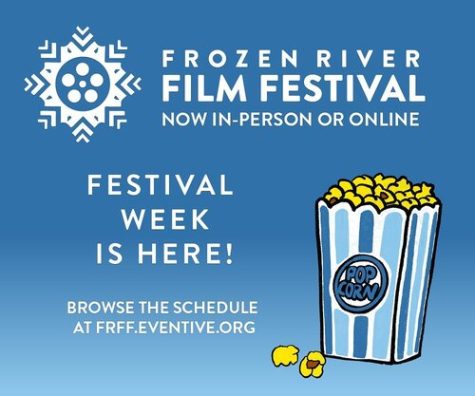
Films in the FRFF used to be put into one of four categories: global/ culture, environment, adventure or human interest. Since films often overlap and intersect into several genres, these categories have been done away with. The only requirement to submit a film into the FRFF is for the film to be a documentary.
Moeller commented that the FRFF is important because it brings new perspectives and knowledge to people, and documentary films are a great vehicle for that.
“It’s important for folks to have access to stories about people that are different from them,” Moeller said. “That’s really what a documentary comes down to: it’s storytelling.”
Lanz echoed this sentiment and added to it when talking about the FRFF’s purpose.
“Part of our mission statement originally was to educate and to get people involved. We have shown a lot of films in the past that had to do with social issues and things like that to make people more aware and also to get people more involved in things,” Lanz said. “The nice thing about being able to be in person again is that you have that sense that people are gathering after watching a film and talking about that.”
Lanz, who manages the Screening Committee, is currently looking for college-aged people to join the committee and help screen films over the summer. For anyone interested, contact Lanz at [email protected].
Dakota Maertz is a third-year Winona State student who double majors in film studies and creative digital media. Maertz has attended the FRFF each year he has been at Winona State and submitted a film last year.
“Outside of the film festival I’m not that much of a documentary person, like, I don’t watch documentaries for fun or anything like that. But every time this festival comes around I’ll watch the ones that they show and then I will get in a doc- umentary kick for another month and just watch everything I possibly can,” Maertz said.
Maertz said he was excited for the festival to be back in person again, pointing to being able to sit down with people and watch a film and talk with the filmmaker afterwards in a Q&A as reasons for his excitement.
“I think something that is kind of scary for every single film student is like, ‘What are you actually doing with your degree? You’re watching a bunch of films,’ that’s what you hear from a lot of people,” Maertz said. “I think that having these supplemental support systems like the FRFF kind of give you an idea of what you’re actually building towards; it reminds you of why you’re in your degree in the first place.”
Maertz also mentioned how the filmmaker Q&As and different workshops help a great deal in learning, connecting and networking.
“Something big to get out of [FRFF] is just getting experience being at an actual film festival. I know there’s a lot of people who have a film major wanting to go into administration for those kinds of festivals or event planning and stuff like that,” Maertz said. “I think having a local and fairly big resource like the FRFF is super helpful.”
As always, the FRFF is free to all Winona State students.
The FRFF also has opportunities for Winona State students to take advantage of, such as various volunteer or internship positions.
“When I work with an intern I ask questions about what they are interested in, where they feel their strengths are and then we usually tailor the tasks to the person,” Moeller said. “I am really passionate about making sure that it is a positive experience and that we can set up interns for success.”
Lanz encouraged everyone to attend the FRFF.
“Come and watch the films… there’s some really fun stuff. Some of the films we are showing are just a blast,” Lanz said.























































